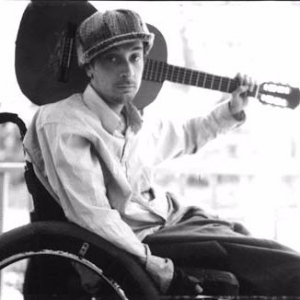Last Thursday (in Fragments) - "I think that's it"
"The memory came faint and cold of the story I might have told, a story in the likeness of my life, I mean without the courage to end or the strength to go on."
Tape Extracts:
[Opens with the story of Libby Cantrell as told by Don Chambers as Recorded at the Show]
Don Chambers: Yeah, obscurity has been...when I was in college my professor Judy McWillie used that description for my paintings that I like to obscure things and I'd never thought about that before. But it is it is part of the way I work and that goes back to that that Tarkovsky idea of poetics and film, that's not. It's a little bit of different from that. But the idea of weaving words or images together in a way that there's plenty of gaps in the weave that need to be filled in by someone. By the intelligence of another person, the person who's coming to it, so the piece remains open.
Obscuring is another way of doing that. Make somebody else do some work too. I don't want to give it all away. I don't have anything to give all away either. I don't have a message. I'm not interested in messages.
Ideas are always, the big ideas are abstract and wily and and hard. The big ideas you shouldn't be able to look at all at once, you can't. We're too close to em'. They are very large animals and we are getting a little glimpse of their hind leg and then of their their main and then the eyeball if you get lucky one day, but you're just moving around this really big thing that it'll take you your lifetime to get to understanding the sublime mystery of the world and how we're here, what are we doing here, all the basic questions these are giant, giant questions and they're the things. Art making is just moving around that big giant beast. And don't get stuck in its mouth.
Garrett Tiedemann: Did you start off as a painter?
Don: I did. I started off, I went to school in South Carolina and then in Georgia and I got a degree in painting and printmaking and worked as an artist for a bit of the 90s. I got a few grants. I did this collaborative piece with sociologists. We went down to Florida and interviewed retired circus performers and I photographed all their like scrapbooks and personal memorabilia. And then I would kind of mess them up. I did installations based on those. And we also had a book of interviews of all those performers. But I was playing music because I was in Athens and that just kind of took over. It was just funner.
There was a point where I felt like I had to decide whether I was going to go one way or the other in my in my 30s and I was like alright, I'm just gonna music for now and let's see what happens. But I keep coming back to it. I had a painting show last year. First time in 10 years. But I keep, I've always done visual stuff, but I hadn't really done anything that I felt like was worth it, was focused enough to show. But, last year I had a painting show and I'll probably do like a three or four month painting stint.
I just, the older I get the more I like working on one thing at a time and focusing on it and making it a project. And then when I'm done with it I'll do three or four months of painting and then I'll go back to music.
I had a dream last night. I had a dream last night that I was talking with Tom Waits. And we were talking about something and I was referencing a book. And he got out. He got out of his really fucked up artist brush. And he had some paint with him and he's like looking at the book and in order to make his points he was just painting onto the book that we were talking about. So, I've been doing watercolors while we've been talking in my notebook.
I stole from my dream.
Garrett: I always find it interesting to encounter people who aren't locked in a singular idea of what they're supposed to do because I mean I know growing up even if you're studying artists and whatnot who did a lot of different things you're sort of given this, and maybe it's an American idea I'm not totally sure, but this idea of the artist doing like, they are a painter or they are a composer or they are a filmmaker. And it's always the ones who never were settled in that that I found the most interesting, where it just all overlaps and feeds a larger piece that's not satisfied with just one medium.
Don: And there they always say you're not supposed to try and be more than one thing. But, to me they all feed together. I mean, why not? Who says?
Orson Welles (from Archive tape): Be of good heart. The fight is worth it. That just about means that my time is up. When my time's up it's time for me to say goodbye and to invite you please to join me at the same time, at the same station. Until then. Thanking you for your attention. I remain as always...
Don: Well if you didn't get enough we can always come back to it man.




